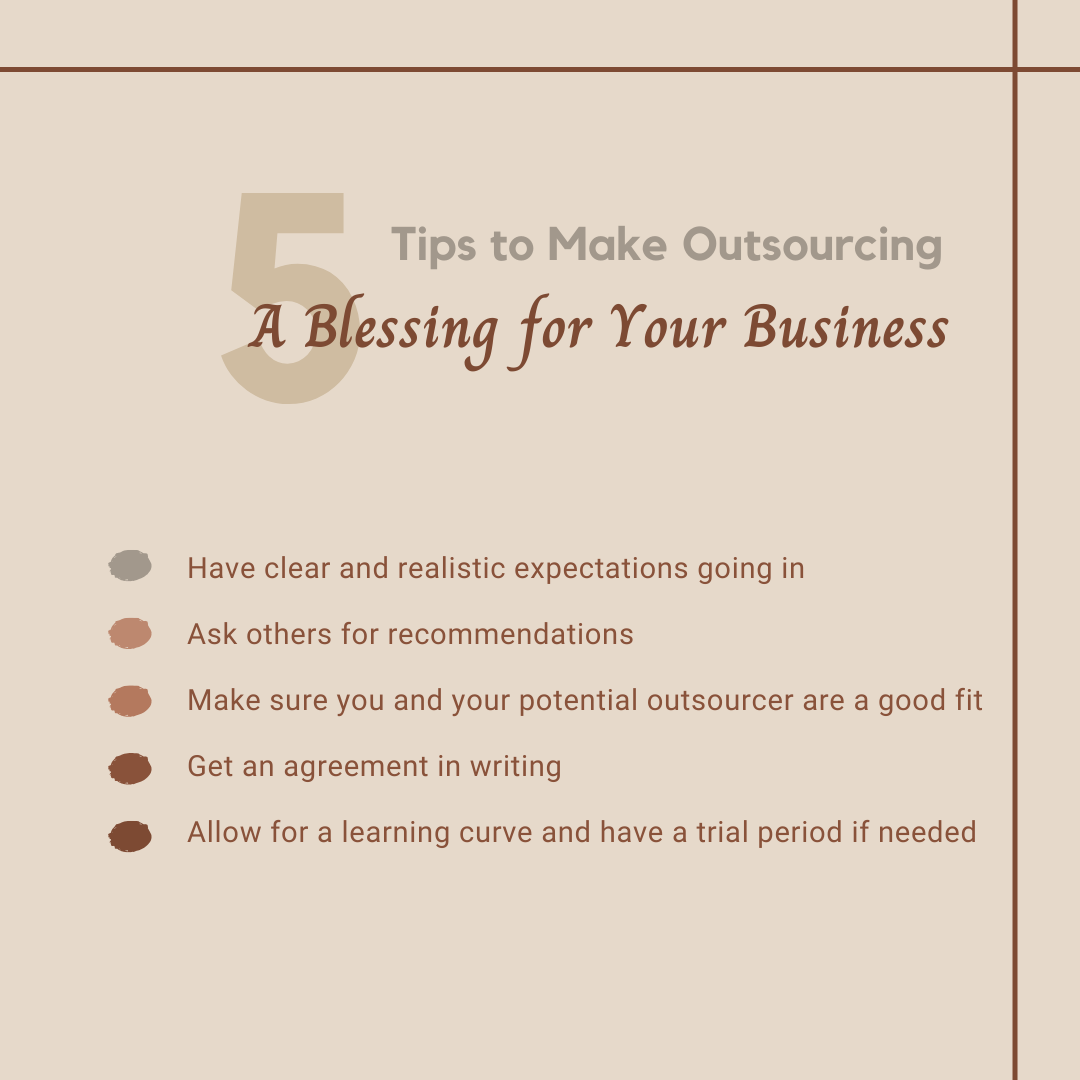Outsourcing your blog (or any other aspect of your business) can be a lifesaver. Having someone else do the work you don’t love frees up your time and energy to do more of what you’re passionate about. It can also mean that the outsourced job gets done more effectively because it’s being taken care of by a pro. But outsourcing can cause headaches if it’s not done right. Here’s how to avoid problems with outsourcing so that trusting someone else with some of your business tasks is a blessing rather than a curse.
1. Have Clear and Realistic Expectations
First of all, you’ll want to have clear and realistic expectations about what your blogger or other outsourcer is supposed to accomplish. Is it just blogging you want, or do you expect them to take care of other written materials (like newsletters or web copy) as well? What are you hoping to get from their services? (More website traffic, better SEO results, simple maintenance?) Talk to a potential outsourcer about exactly what tasks you want them to take on and what your expectations are. They’ll be able to tell you about their skillset and if they feel confident they can deliver the results you’re hoping for.
2. Get Recommendations from Others
If you know other people who have outsourced some of their work, ask them for recommendations. This is a great way to find potential outsourcers. It can also give you peace of mind, knowing that someone you trust has had a good experience with them.
Almost all of the clients who outsource their blogging to me were put in touch by others in their field who had used RedFox Blogging services before. Being recommended to someone by a friend means that there’s immediately a level of trust and a point of connection to build on.
3. Make Sure It’s a Good Fit
Word of mouth is a great place to start when it comes to finding some business help. But keep in mind that just because an outsourcer was a great fit for your business buddy doesn’t necessarily mean they’re perfect for you. In addition to making sure a potential outsourcer can deliver what you’re looking for, it’s also a good idea to make sure you work well together. You don’t have to be besties or anything, but you probably don’t want to work with someone whose personality grates on you.
4. Sign a Contract or Letter of Agreement
Signing anything can feel like a scary step, but a contract or letter of agreement is in place to protect both parties. Most experienced outsourcers will have some form of contract that you can read over to make sure you’re both on the same page.
If your outsourcer doesn’t have a contract, it’s not necessarily a red flag—they may do great work but simply be newer to the field, or maybe they outsource on the side and haven’t felt the need for a contract. In cases like this, it can be a good idea to create (or ask them to create—especially if they specialize in writing) a letter of agreement. This is less formal than a contract, but it spells everything out in black and white so that you’re both clear on what needs to be done and when.
A lot of outsourcing problems arise from simple miscommunication, so having a written agreement in place is an important step in avoiding potential pitfalls.
5. Allow for a Learning Curve and Have a Trial Period if Necessary
Hiring an outsourcer is different than hiring an employee. But, like a new employee, your outsourcer may still need a little time to learn the ropes of your specific business. If their first piece of work isn’t perfect, give them feedback and see if their next piece is closer to the mark. Remember that the relationship is a learning curve for both of you, so give it some time to really start working.
If you’re hoping to outsource long-term (i.e. you want to outsource blogging for the foreseeable future, not just hire someone for a one-time gig to create web copy for your site), see if your outsourcer would be open to a trial period. Their contract might come with an expiration date, in which case you’ll probably have the choice to renew or discontinue their services a few months or a year from when you start. Otherwise, you can write the trial period into your letter of agreement.
Make sure that both you and your outsourcer feel that the length of the trial period is reasonable. For example, my minimum trial period is 6 months, because most people outsource blogging for SEO purposes. Blogging is a very effective way to improve your SEO, but it takes a while and most people don’t see results for at least 6 months, so it just makes sense to stick with it for at least that long.
To Outsource or Not to Outsource
So, is outsourcing right for you? In my opinion, some form of outsourcing is right for most small business owners—and pretty much every solopreneur. What you outsource will vary depending on yourself and your business. But there’s such a lot to think about and stay on top of that it’s usually healthier for you and your work if you delegate some tasks to an expert.
I hope these tips have made the prospect of finding a great outsourcer feel a little more manageable. And hey, if it’s blogging you’re looking to outsource, you can check out my packages here. I hope you’ll be in touch!
In the meantime, I’d love to hear your thoughts. What’s one thing you would love to outsource? Or maybe you’re already outsourcing—which tasks did you move off your plate?



